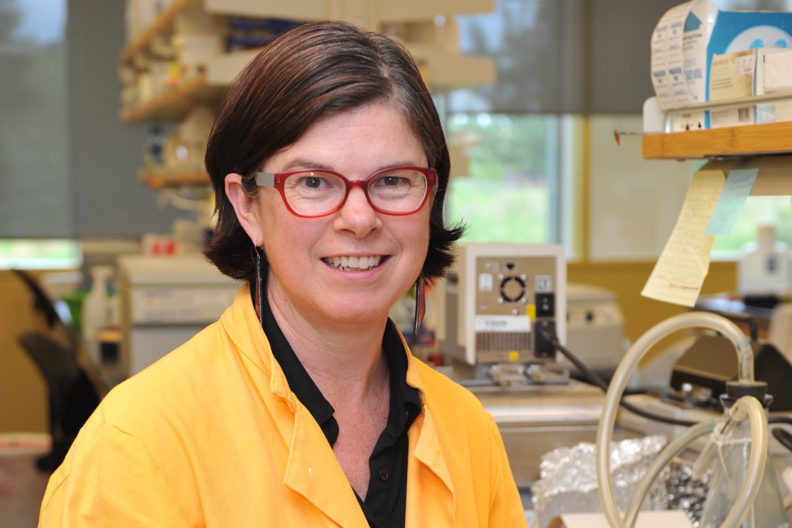WSU’s Leigh Knodler wins prestigious award from Burroughs Wellcome Fund
Friday, May 17, 2019

Media contact:
Leigh Knodler, Paul G. Allen School for Global Animal Health, 509-335-4046, leigh.knodler@wsu.edu
Laura Lockard, College of Veterinary Medicine, 206-861-6884, lauralockard@wsu.edu
PULLMAN, WA –The Burroughs Wellcome Fund today announced that Leigh Knodler, assistant professor at the WSU Paul G. Allen School for Global Animal Health (Allen School), was awarded 2019 Investigators in the Pathogenesis of Infectious Disease funding. She is joining a cohort of 10 others from leading research universities around the country.
The Pathogenesis of Infectious Disease (PATH) program provides opportunities for early career investigators to bring multidisciplinary approaches to the study of human infectious diseases. This highly competitive program allows accomplished investigators early in their careers to study mechanisms where humans and potentially infectious agents connect.
Dr. Guy Palmer, Allen School Regents Professor of pathology and infectious diseases stated, “Appointment as a Burroughs Wellcome Investigator is one of the highest, if not the highest, honor for an early to mid-career scientist in infectious diseases and follows a rigorous selection process to identify individuals who not only have a record of outstanding accomplishment but also creativity. In this appointment, she joins both a cohort of fellow awardees and an alumni network of some of the most distinguished scientists in infectious diseases and biomedical research.”
With this grant Knodler will have the freedom and flexibility to pursue new avenues of inquiry, stimulating higher risk research projects that hold potential for significantly advancing the understanding of how infectious diseases work, particularly related to gastrointestinal disease.
Knodler’s research explores pathogenic microbes of the gut that cause disease by residing inside of host cells. Bacteria are initially ingested by human cells and once inside, bacteria can then live in one of two places - either remain enclosed within a cell membrane, or destroy the surrounding membrane to live freely in the cellular fluid. Salmonella and Shigella are closely related bacterial cousins that both cause gastroenteritis in humans and live inside the epithelial cells lining the human intestine, yet Salmonella stays within a membrane-bound vacuole, but Shigella lives in the cellular fluid of intestinal cells. Why is this so?
With this funding Knodler will study how closely-related bacterial proteins have evolved to change the way that bacteria live inside of host cells, either free living or within a membrane-bound compartment. The long-term goal of this research is to target these bacterial proteins to render the bacterial pathogens harmless.
“The Paul G. Allen School for Global Animal Health at Washington State University has provided me an ideal setting for innovative research with outstanding laboratory infrastructure and a collaborative environment that encourages reaching for impact,” stated Knodler. “The Burroughs Wellcome PATH funding will provide me with an even greater opportunity to explore new ways to improve human health.”
About the award
The Investigators in the Pathogenesis of Infectious Disease (PATH) award provides $500,000 over five years to support accomplished investigators at the assistant professor level to study pathogenesis, with a focus on the interplay between human and microbial biology, shedding light on how human and microbial systems are affected by their encounters. The selection committee was charged with identifying from nearly 150 applicants the candidates whose research is most likely to challenge current paradigms and redirect the thinking on the causes and potential treatments of disease.
See WSU News, https://news.wsu.edu/2019/05/17/wsus-leigh-knodler-wins-prestigious-award-burroughs-wellcome-fund/